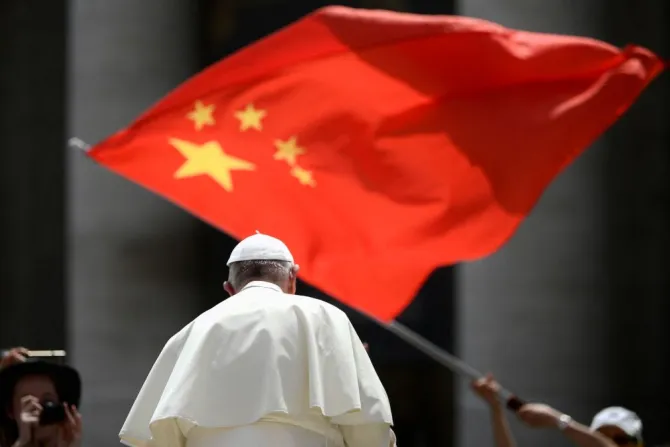A significant development has emerged as the Vatican extends its agreement with China regarding the appointment of Catholic bishops for another four years.
This decision coincides with growing concerns over the treatment of Catholic bishops in China, highlighted by a recent report from the Hudson Institute.
The report disclosed that seven Catholic bishops have been detained without due process, while others face increasing scrutiny, surveillance, and police investigations since the original Sino-Vatican agreement was established six years ago.
New Timeline for the Agreement
With this extension, the Sino-Vatican agreement is now set to last until October 22, 2028.
The official statement from the Holy See emphasizes the Vatican’s commitment to fostering respectful and constructive dialogue with Chinese authorities.
This dialogue aims to enhance bilateral relations for the benefit of both the Catholic Church in China and the broader Chinese populace.
Additionally, the statement noted that the extension was reached after careful consultation and assessment by both parties.
Confirmation from Chinese Officials
China’s foreign ministry spokesperson, Lin Jian, also affirmed the extension, indicating that both sides would continue to maintain contact and dialogue in a constructive spirit, as reported by the Associated Press.
The initial agreement was signed in September 2018 and has seen renewals in 2020 and again in October 2022.
Terms of the Agreement Remain Under Wraps
Although the specific terms of the agreement have not been publicly disclosed, Pope Francis has mentioned that it involves a joint commission overseeing the appointment of Catholic bishops.
This commission includes representatives from both the Chinese government and the Vatican, with oversight from Cardinal Pietro Parolin, the Vatican’s Secretary of State.
Challenges in Dialogue
Despite ongoing discussions, the Vatican’s relationship with China has faced challenges.
The Holy See has acknowledged instances where China violated the agreement by unilaterally appointing bishops in Shanghai and the newly created “diocese of Jiangxi,” which the Vatican does not recognize.
While Pope Francis has expressed satisfaction with the dialogue, the Vatican’s foreign minister, Archbishop Paul Richard Gallagher, has taken a more cautious stance, describing the agreement as “not the best deal possible” and indicating that there is room for improvement in its implementation.
Recent Developments in Bishop Appointments
Since the inception of the Sino-Vatican agreement, around ten bishops have been appointed and consecrated, according to Vatican News.
A notable event is scheduled for this Friday, as a new coadjutor bishop for Beijing is expected to be installed.
This bishop will be just five years younger than the current Archbishop Joseph Li Shan, who remains significantly younger than the typical retirement age for Catholic bishops.
In August, the Chinese government officially recognized 95-year-old Bishop Melchior Shi Hongzhen, a former underground bishop.
The Vatican viewed this recognition as a “positive fruit of the dialogue” with Beijing.
Human Rights Concerns
Human rights advocates have criticized the Vatican’s silence on issues of religious freedom in China during these negotiations.
Reports indicate that the Chinese government has been involved in the internment of Uyghur Muslims and has imprisoned democracy advocates, including Catholic activist Jimmy Lai in Hong Kong.
There are also troubling reports that Chinese officials have ordered the removal of crosses from churches and replaced religious images with those of President Xi Jinping.
The United States Commission on International Religious Freedom (USCIRF) has highlighted the Chinese Communist Party’s (CCP) “sinicization of religion” campaign, which has led to censorship of religious texts and forced clergy to promote CCP ideology in their sermons.
The Future of Religious Freedom in China
USCIRF Commissioner Asif Mahmood commented on the situation, stating that while some Catholics choose to worship within the state-controlled Chinese Catholic Patriotic Association, they do so under strict controls imposed by the CCP.
Ultimately, he emphasized that the Chinese government’s primary goal is to ensure unwavering loyalty to the CCP and its political agenda, rather than protecting the religious freedoms of Catholics.
What lies ahead for the Vatican and the Catholic Church in China remains uncertain as they navigate these complex and challenging dynamics.
Mine Crypto. Earn $GOATS while it is free! Click Here!!
Telegram Airdrops: Crypto Giveaway
Join CryptoFiat Giveaway for free USDT giveaways and other opportunities!
